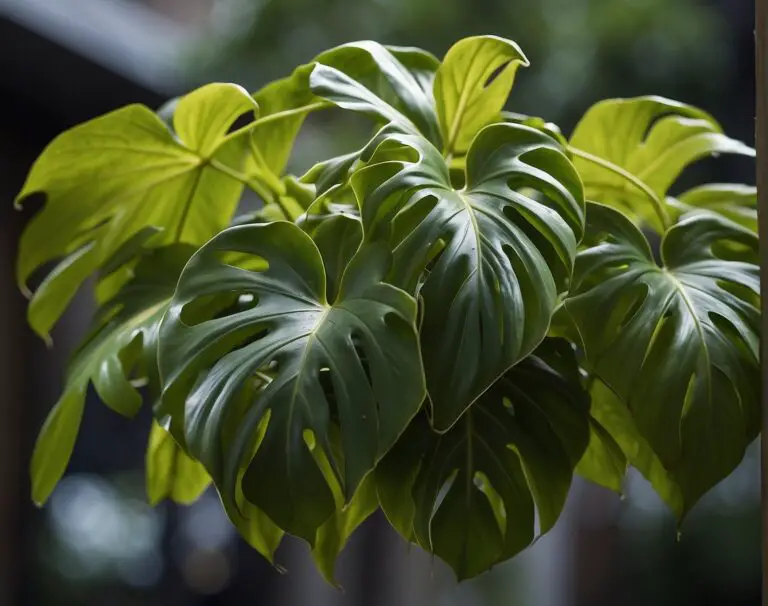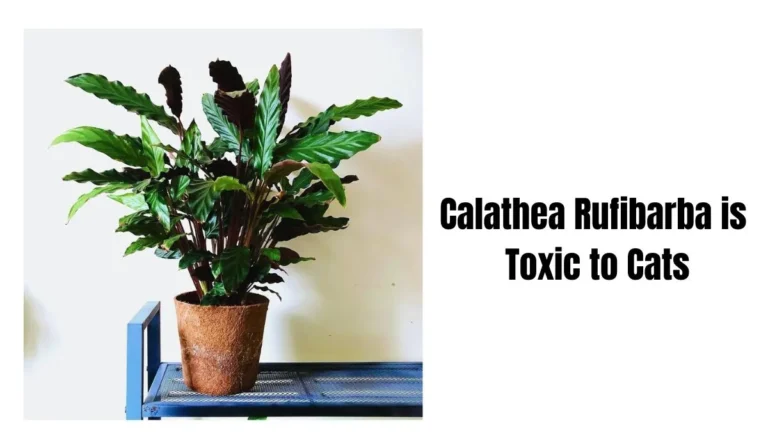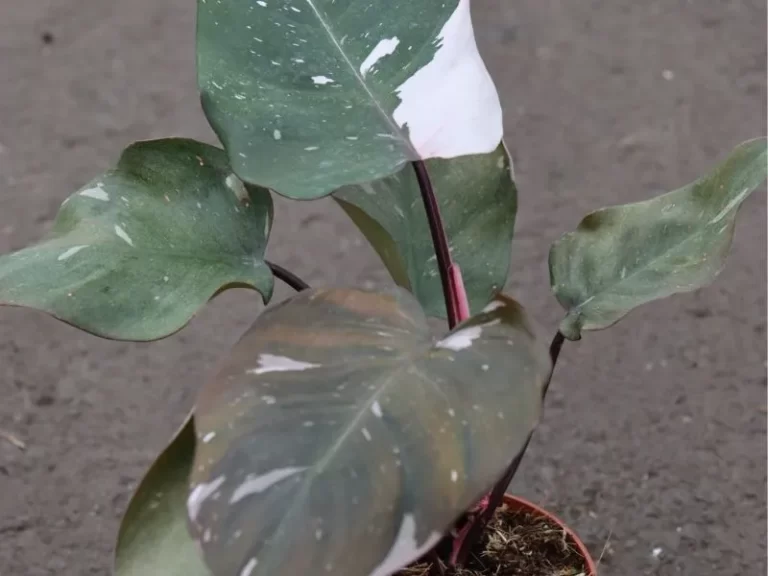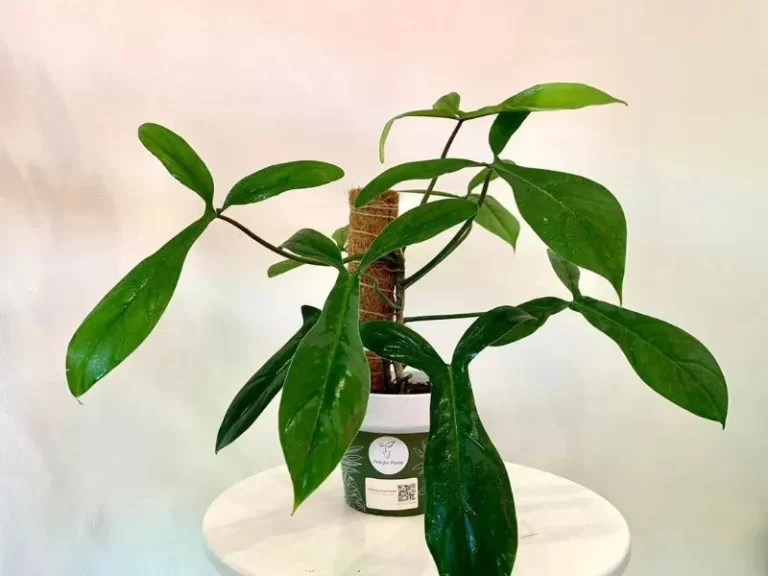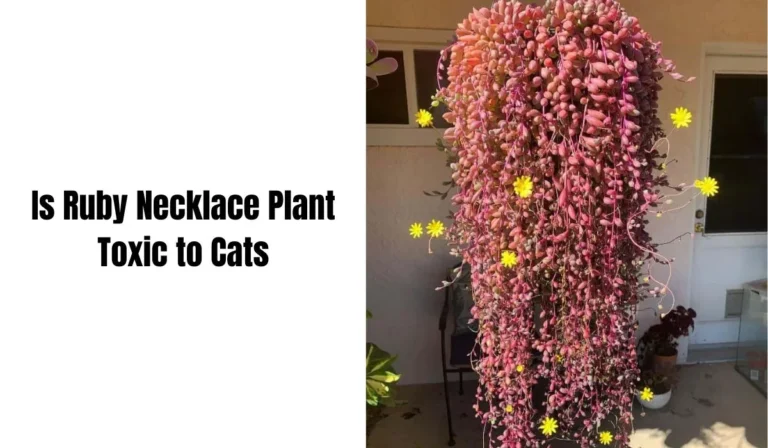Are Pothos Toxic to Cats? A Friendly Guide to Keeping Your Feline Friends Safe
If you’re a cat owner and a plant lover, you might be wondering if your adorable feline and your beautiful pothos plant can coexist in harmony. Unfortunately, the answer is not straightforward.
Pothos plants are known for their easy care and ability to thrive in low-light conditions, but they can be toxic to cats if ingested.

The toxicity of pothos to cats is due to the presence of calcium oxalate crystals in the plant’s leaves and stems. When a cat chews on or ingests the plant, these crystals can cause a range of symptoms, from mild irritation to more severe reactions such as vomiting, difficulty swallowing, and even kidney failure in extreme cases.
It’s essential to be aware of the potential risks of having pothos plants around your feline friend and take necessary precautions to keep them safe.
Key Takeaways
- Pothos plants contain calcium oxalate crystals that can be toxic to cats if ingested.
- The symptoms of pothos poisoning in cats can range from mild irritation to more severe reactions such as vomiting and kidney failure.
- To keep your cat safe, take immediate action if you suspect they’ve ingested pothos and consider preventive measures such as keeping the plant out of reach or choosing a cat-friendly alternative.
The Toxicity of Pothos to Cats

If you are a cat owner, you might be wondering whether it is safe to have pothos plants in your home. Pothos plants are a popular choice for indoor decoration because they are easy to care for and can thrive in low-light conditions. However, these plants can be toxic to cats if ingested.
Identifying Harmful Components
Pothos plants contain insoluble calcium oxalate crystals, which are toxic to cats. When a cat chews on or ingests any part of the plant, these crystals can cause irritation and swelling of the mouth, tongue, and throat. This can lead to difficulty breathing, vomiting, and diarrhea.
How Pothos Affects a Cat’s Health
If your cat ingests a small amount of pothos, they may experience mild symptoms such as drooling or pawing at their mouth. However, if they ingest a larger amount, they may experience more severe symptoms such as difficulty breathing or vomiting. In rare cases, ingestion of pothos can lead to renal failure.
It is important to note that not all cats will have the same reaction to pothos plants. Some cats may be more sensitive to the toxic components of the plant than others. However, it is best to err on the side of caution and keep pothos plants out of reach of your feline friends.
Recognizing Signs of Pothos Poisoning in Cats

If you suspect your cat has ingested pothos, it’s important to recognize the signs of poisoning. The symptoms of pothos poisoning in cats can vary depending on the severity of the ingestion.
Some of the most common symptoms include:
- Oral irritation: This can include intense burning of the lips, tongue, and mouth. Your cat may paw at their mouth or drool excessively.
- Vomiting: If your cat has ingested a significant amount of pothos, they may vomit as their body tries to expel the toxins.
- Difficulty swallowing: Pothos can cause swelling in the throat, making it difficult for your cat to swallow.
It’s important to note that cats are excellent at masking pain and discomfort, so it may be hard to notice some of these symptoms at first. If you notice any of these symptoms in your cat and suspect they have ingested pothos, it’s important to seek veterinary care immediately.
In severe cases of pothos poisoning, your cat may experience more serious symptoms such as seizures, difficulty breathing, or even coma. It’s crucial to act quickly if you suspect your cat has ingested pothos to prevent these more severe symptoms from occurring.
Remember, prevention is the best way to protect your cat from pothos poisoning. Keep pothos plants out of reach of your cat and consider choosing a non-toxic alternative if you want to add some greenery to your home.
Immediate Actions to Take if Your Cat Ingests Pothos
If you suspect your cat has ingested pothos, it’s essential to act quickly. Here are some immediate actions to take:
- Call your vet: Contact your veterinarian immediately and explain what has happened. They will give you specific instructions on what to do next.
- Monitor your cat’s behavior: Keep an eye on your cat’s behavior and look out for any signs of discomfort or illness. Symptoms of pothos toxicity in cats include oral irritation, excessive drooling, vomiting, and difficulty swallowing.
- Remove any remaining plant material: If you find any remaining plant material in your cat’s mouth or around the area, remove it immediately. This will help prevent further ingestion of the toxic plant.
- Induce vomiting: Your vet may instruct you to induce vomiting in your cat. This is done by giving your cat hydrogen peroxide. However, do not attempt to induce vomiting without consulting your veterinarian first.
- Provide supportive care: Depending on the severity of your cat’s symptoms, your vet may recommend supportive care such as administering fluids or medications.
Remember, pothos can be toxic to cats and can cause serious health problems. If you suspect your cat has ingested pothos, act quickly and contact your veterinarian immediately.
Preventive Measures for Cat Owners
As a cat owner, it’s important to take preventive measures to keep your feline friend safe from the toxic effects of pothos plants. Here are some tips to help you out:
Safe Placement of Pothos Plants
The first step to keeping your cat safe is to place your pothos plants in a safe location. You can put your plants on high shelves or use hanging baskets to keep them out of reach of your curious cat.
If you have a large pothos plant, you can use a plant stand to elevate it. Make sure that the stand is sturdy enough to support the weight of the plant.
Alternative Pet-Friendly Plants
If you want to keep plants in your home but don’t want to risk your cat’s health, there are plenty of pet-friendly alternatives to pothos plants.
Some examples include spider plants, Boston ferns, and African violets. These plants are not toxic to cats and can add a touch of greenery to your home.
Remember, prevention is key when it comes to keeping your cat safe from pothos plants. By following these simple tips, you can enjoy your plants while keeping your furry friend healthy and happy.
Frequently Asked Questions
What should I do if my cat ingests a pothos plant?
If you suspect your cat has ingested a pothos plant, it’s important to act quickly. Contact your veterinarian or a poison control center immediately. Do not induce vomiting or administer any medications without first consulting with a professional.
How can I tell if my cat has been poisoned by a pothos?
Symptoms of pothos toxicity in cats include vomiting, diarrhea, drooling, difficulty breathing, and loss of appetite. If you notice any of these symptoms in your cat, seek veterinary care immediately.
What are the symptoms of pothos toxicity in cats?
Symptoms of pothos toxicity in cats include vomiting, diarrhea, drooling, difficulty breathing, and loss of appetite. If you notice any of these symptoms in your cat, seek veterinary care immediately.
Are there any non-toxic alternative plants to pothos for cat owners?
Yes, there are many non-toxic plants that cat owners can choose from, such as spider plants, bamboo, and African violets. It’s important to research any plant before bringing it into your home to ensure it is safe for your cat.
How can I prevent my cat from eating pothos and other toxic plants?
The best way to prevent your cat from eating pothos and other toxic plants is to keep them out of reach.
Place plants on high shelves or in hanging baskets where your cat can’t reach them. You can also try using bitter sprays or placing aluminum foil around the base of the plant to deter your cat.
What are the immediate steps to take if I suspect my cat has eaten pothos?
If you suspect your cat has eaten pothos, contact your veterinarian or a poison control center immediately. Do not induce vomiting or administer any medications without first consulting with a professional.

